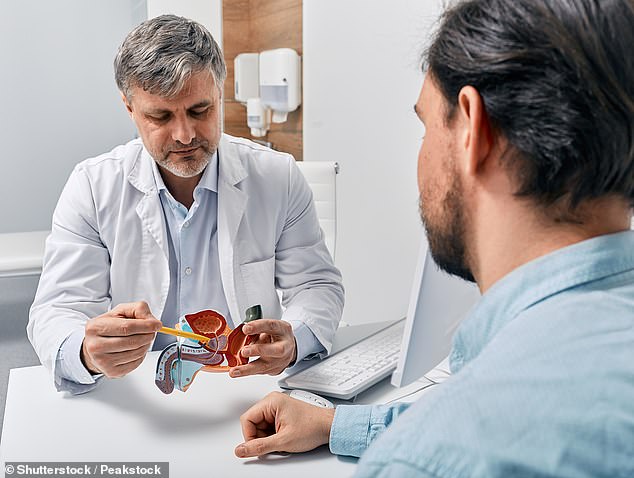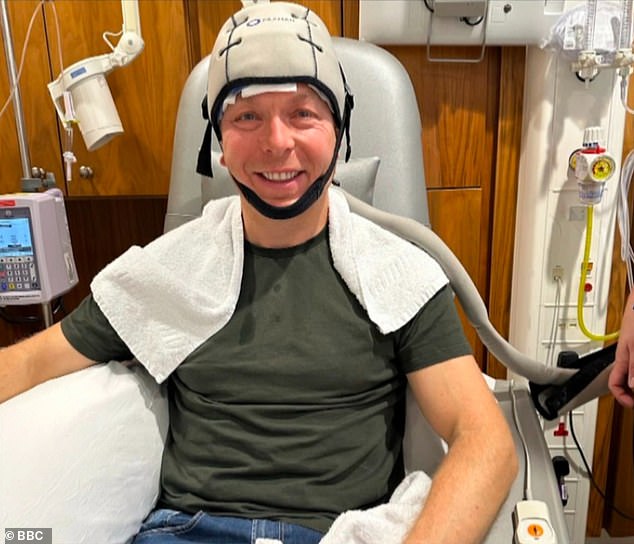Worried young men are increasingly paying for private prostate cancer tests as they are not eligible for them on the NHS, figures have revealed.
Over the past three months Britain’s biggest online pharmacy has seen a 600 per cent rise in sales of blood tests that looks for signs of the disease.
According to Pharmacy2U, men under 50 are most likely to order the prostate specific antigen (PSA) test. The trend followed the news last year that Olympic champion cyclist Sir Chris Hoy had terminal prostate cancer.
He was diagnosed at 48, having never been offered a PSA test.
NHS guidance states that men under 50 can have the test only if they have symptoms, which include difficulty urinating, erectile dysfunction, blood in the urine and semen, weight loss, back pain and loss of appetite. But most men with early-stage prostate cancer do not have any.
Sir Chris – along with Prostate Cancer UK – is calling for the age at which men are offered the test to be lowered to 45. More than 55,000 men a year are diagnosed with prostate cancer in the UK, with 12,000 dying from it in the same period. Caught early, most cases can be managed or cured.
Men over 50 can request a PSA test – which looks for cancer particles in the blood – and younger men may be offered one if they report symptoms.
But experts say that, often, by the time symptoms appear, the disease has begun to spread.

Over the past three months Britain’s biggest online pharmacy has seen a 600 per cent rise in sales of blood tests that looks for signs of prostate cancer

Sir Chris Hoy – who said this had been the ‘toughest year of my life’ following his own incurable prostate cancer diagnosis – is calling for the age at which men are offered the test to be lowered to 45
Some doctors argue that access to the PSA test should be limited as it is not always accurate. This means some men with a positive result will undergo unnecessary, and sometimes invasive, procedures to look for cancer they do not have. But others say access to testing should be expanded in order to catch all forms of cancer earlier.
‘Access is so poor now on the NHS for tests, it’s no surprise some patients are going private,’ says Dr Dean Eggitt, a Doncaster-based GP.
‘However, patients should know that the accuracy of these tests is poor and can cause undue anxiety in people who are well and, worryingly, also give false reassurance to sick patients.’







